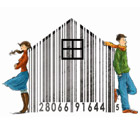Asia-Pacific
UAE signs $20 billion nuclear deal with South Korea
(Agencies)
Updated: 2009-12-28 11:40
 |
Large Medium Small |
DUBAI, United Arab Emirates: The United Arab Emirates on Sunday awarded a South Korean consortium a prized $20 billion deal to build nuclear reactors as the oil-rich Persian Gulf nation races to meet its booming energy needs.
Korea Electric Power Corp.'s winning bid beat out rival offers from more seasoned atomic power producers in France, Japan and the United States. The deal marks the first time South Korea will export a nuclear power plant.
Emirates Nuclear Energy Corp. valued the deal for four 1,400-megawatt reactors at about $20 billion, considerably less than some earlier estimates suggested.
"We look forward to a long and productive relationship as we work toward powering the future growth of the UAE with low-carbon, peaceful nuclear energy," ENEC Chief Executive Mohamed al-Hammadi said.
The Korean consortium includes Samsung, Hyundai and Doosan Heavy Industries. Japan's Toshiba Corp. and its Westinghouse subsidiary will also play a role.
| ||||
The Emirates has said it plans to begin construction on its nuclear plants in 2012. ENEC said the first reactor should begin providing electricity in 2017, with the remaining units coming online by 2020.
The United States earlier this year signed an agreement with the UAE for the country to import, rather than produce, fuel for its nuclear reactors. The Emirates committed not to enrich uranium or reprocess spent nuclear fuel into plutonium, which is used in nuclear bombs.
Washington had promoted its plan to help the UAE develop peaceful nuclear power as a model of the kind of cooperation it would like to achieve with Iran, which the US and its allies suspect is using a civilian program as a cover to develop an atomic weapons capability.
The UAE sits just across the Persian Gulf from Iran. Although the Arab state has long-standing commercial and cultural ties to Iran, it is also wary of Tehran's nuclear ambitions.
Al-Hammadi declined to discuss the losing proposals, telling reporters that all three finalists offered "excellent" bids.
One set of finalists was a US-Japanese team that included General Electric Co. and Hitachi Ltd. The other was a French consortium that included Electricite de France, GDF Suez SA, Areva SA and Total SA.
France strengthened its commitment to the UAE when it opened a naval base outside the capital Abu Dhabi in May. The Gulf state also plays host to US forces.
Gulf energy expert Robert Bryniak, chief executive of Golden Sands Management Consulting in Abu Dhabi, said South Korea's team likely offered the lowest price.
"They're making (their decision) based on the economics and the merits of the proposal, rather than on politics," he said.
South Korea has never before exported a nuclear power plant. The Asian country's Ministry of Knowledge Economy said the deal is expected to bring South Korea a total of about $40 billion from building the nuclear reactors and participating in their operation.
The ministry hailed the deal as the biggest single contract that the country has ever won overseas.
"We can now stand shoulder to shoulder with the US, Japan, France and Russia in our advance into the international market," South Korean President Lee Myung-bak was quoted as saying by his country's Yonhap news agency.
South Korea first introduced atomic power in 1978 and now has 20 nuclear reactors in operation. The country relies on atomic power for about 40 percent of its electricity.
Some 30 countries operate 436 nuclear reactors worldwide, according to the International Atomic Energy Agency. The US, France and Japan run nearly half of those.









